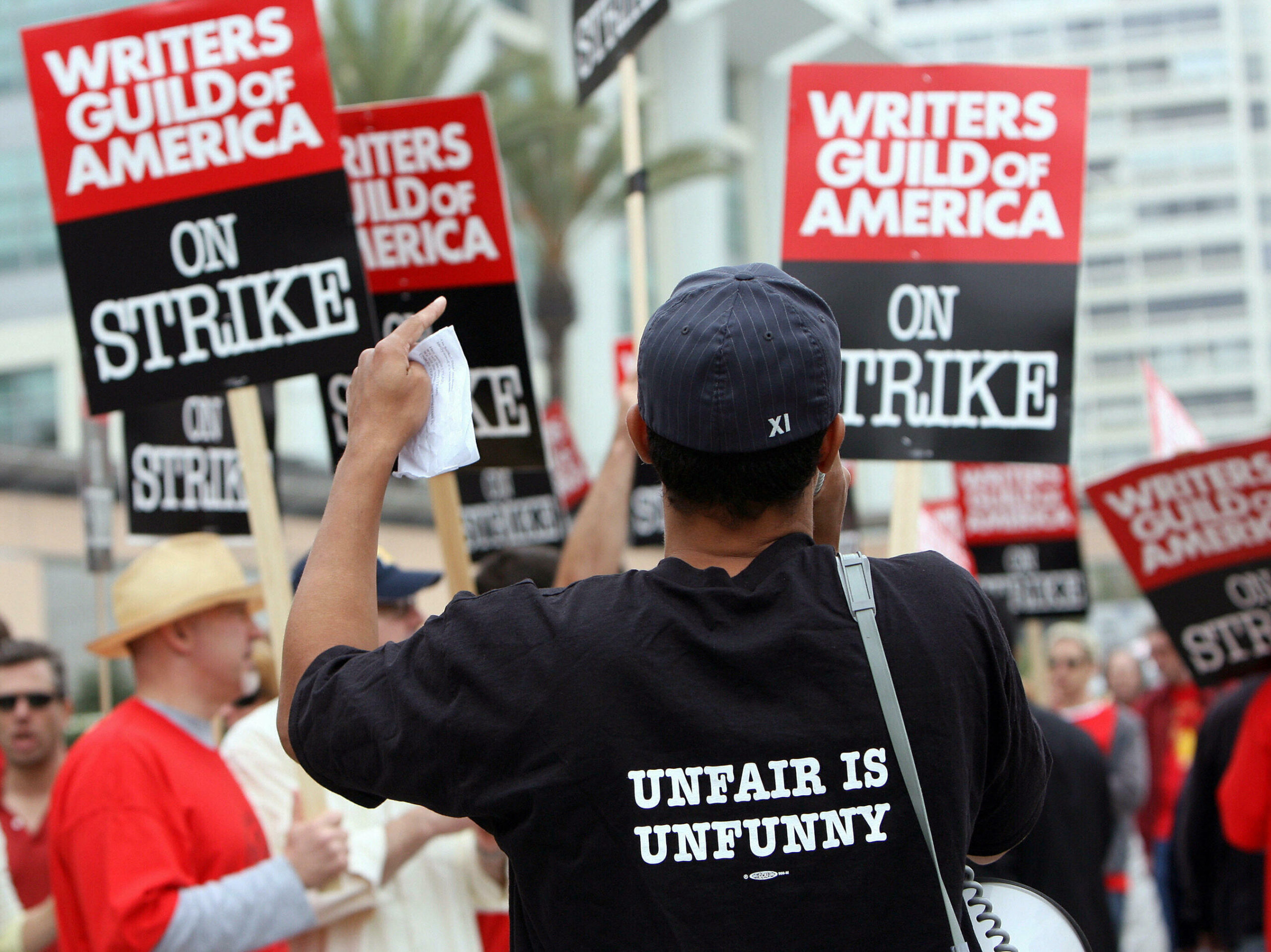The entertainment industry is in the midst of a significant shift as over 11,000 members of the Writers Guild of America (WGA) go on strike, protesting perceived unfair labor practices. This event has sparked a nationwide conversation about the nature of creative work and the rights of those who produce it.
Demanding Fair Compensation for Creative Labor
The strike began after failed negotiations between the WGA and major Hollywood studios for a new collective bargaining agreement. The WGA is demanding a 25% increase in writer-producer minimums. This request represents a broader issue of valuing the creative labor integral to the entertainment industry.
Gig Work in Hollywood
The WGA contends that studios are attempting to transform writing into gig work, akin to driving for Uber or delivering for Door Dash. In this model, writers are treated as “independent contractors” rather than employees, stripping them of certain rights and protections.
Streaming Platforms and Fair Compensation
The rise of streaming platforms has fundamentally altered Hollywood, opening new opportunities but also presenting new challenges for writers. WGA members argue that the prosperity of streaming should correlate with increased pay, a notion contested by studio executives who cite heightened costs.
Broader Implications for the Gig Economy
The strike brings attention to broader labor rights issues within the gig economy, emphasizing the tension between corporate interests and workers’ rights across multiple sectors. It forces us to question how creative work is valued in our society and how to ensure fair treatment for all workers, including those in the gig economy.
Impact and Future Implications of the Strike
The strike has significant implications for the industry, disrupting content production and potentially causing job losses. Its future implications could include changes in writers’ compensation, reshaping industry norms, and influencing broader discourse on labor rights in the gig economy.
The Invisible Backbone of the Entertainment Industry
Writers are the unseen backbone of film and TV, creating the characters and stories we love. The WGA strike is a call to recognize their essential role, challenge the gig economy model, and advocate for fair compensation and job security.
Our Role as Consumers
As consumers, we can support the writers by understanding their concerns, advocating for their rights, and choosing to consume content that respects the rights of its workers. We can also join the conversation about the future of work in the digital age, helping to create an economy that values all workers.
A Pivotal Moment for the Gig Economy
The WGA strike is a pivotal event reflecting broader trends in the labor market. The outcome of this strike could have far-reaching implications for the future of work in the digital age. It’s a story that deserves our attention as participants in an economy increasingly characterized by gig work.
The strike is a story still unfolding, one that reaches beyond Hollywood. It involves all of us as participants in the gig economy, and the choices we make will shape the future of work in the digital age.
-Jeremy Webb























